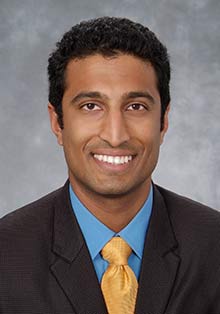601-610 of 1693 Results Found
Article
Globally Renowned Research Scientist Joins Phoenix Children’s, University of Arizona College of Medicine – Phoenix
Vladimir Kalinichenko, MD, PhD, will be Director for the Phoenix Children’s Research Institute at the University of Arizona College of Medicine – Phoenix, and professor of Child Health with tenure. Dr. Kalinichenko is internationally renowned for his research in lung development and regeneration.

Pediatric Type 1 Diabetes Education & Resources
Learning your child has type 1 diabetes can be an overwhelming time for your family as you navigate materials and adjust to a new lifestyle. The first step in taking control of a diabetes diagnosis is seeking out reliable information from a reputable source. Your provider or
Participating Providers Tools and Links
Already a PCCN participating provider? You can access additional resources, such as PCCN’s policies and procedures, its quality agenda, evidence-based guidelines adopted by the network, information on its payer relationships and much more. Learn More
CME Session
PCH - Risk Stratification for Subclinical Pediatric Dyslipidemia - Dr. Damon Dixon
At the end of this presentation, participants should be able to: Explain Pediatric Dyslipidemia Subclinical State Apply Lipid Biomarkers for Pediatric Dyslipidemia Management Differentiate “Genetic Dyslipidemia” and “Atherogenic Dyslipidemia”
Application
Application must be submitted via ERAS Minimum of three letters of recommendation (Pediatric and Medical Genetics and Genomics faculty letters preferred. Chair letter not required.) Passing USMLE/COMLEX 1 scores to be considered for an interview Passing USMLE/COMLEX 1 and 2
Conditions We Treat
Many childhood illnesses include severe symptoms and added stress for both your child and family. Our Palliative Care team helps with many serious illnesses like: Cancer Cerebral palsy Cystic fibrosis Muscular dystrophy Neuromuscular disorders Serious birth defects Serious
Conditions We Treat
Our team is involved in care for infants, children, teens, and young adults with a wide range of conditions, including: Aneurysms Arteriovenous malformations Biliary or liver problems Blood clots Bone tumors Cancer Genetic disorders Hemangiomas Juvenile Arthritis Kidney failure
Conditions We Treat
Our specialists treat all forms of epilepsy, including the following: Dravet syndrome Doose syndrome Epileptic encephalopathy Epilepsy secondary to an underlying genetic/chromosomal disorder Febrile seizures First unprovoked seizure Focal or localization-related epilepsy
CME Session
NSGR - Navigating the Complexities of Migraine Pathophysiology - Ali Reza Tavasoli, MD
Navigating the Complexities of Migraine Pathophysiology Learning Objectives Relate migraine incidences, migraine stages, and CN-V anatomy. Describe the anatomical network and chemical pathway involved in different stages of the migraine. Explain the known and unknown aspects of
